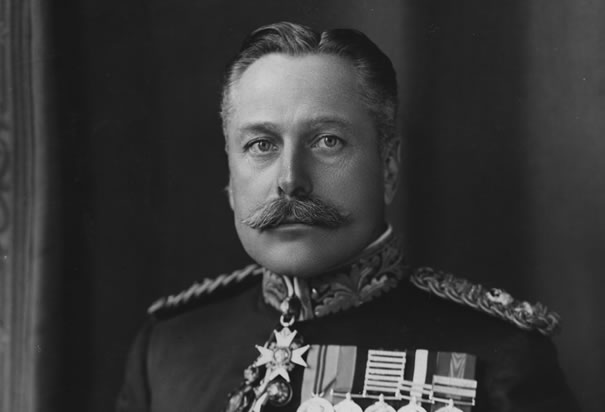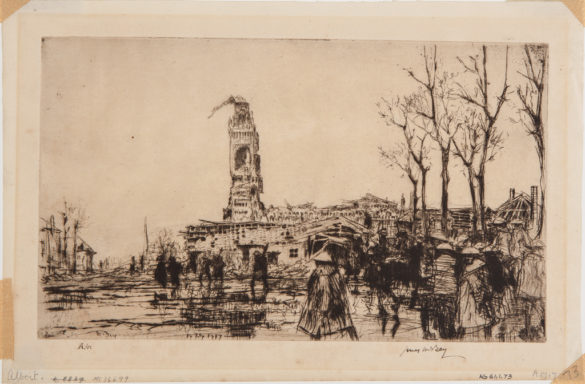. . is a quote that is often attributed to the period during the First World War and in particular to the slaughter suffered by British infantry at the Battle of the Somme. However, it’s origins are much older with variants back to Greco-Roman times.
Karl Marx and Frederick Engels used the phrase on 27 September 1855, in an article published in Neue Oder-Zeitung, No. 457 (1 October 1855), on the British military’s strategic mistakes and failings during the fall of Sevastopol (Crimean War), and particularly General James Simpson’s military leadership of the assault on the Great Redan. The joke making the rounds of the Russian army, that “L’armée anglaise est une armée de lions, commandée par des ânes” (The English army is an army of lions led by asses) has been thoroughly vindicated by the assault on Redan.
They say that ‘old soldiers never die, they just fade away’. That may be true, but young soldiers certainly do – consider the following: On 1 July 1916, the British Army attacked the German front line on the Somme in an ill-planned and over-ambitious offensive. Advancing soldiers were slaughtered by machine guns and artillery fire as they tried to struggle through unbroken barbed wire. The battle was to go on for 141 days, but on the first day alone the British suffered 57,470 casualties, including 19,240 dead! The first day!

The great military tactician (very much) behind this carnage – General Sir Douglas Haig, whose over-optimistic planning under-estimating enemy strength and ignored lessons to be drawn from failures in earlier battles. Inspired by wishful thinking, Haig assured sceptical subordinates that the British would soon break the German line and he had five cavalry divisions waiting to exploit their victory. Born in 1861, in the age of entrenched machine gun regiments Haig still believed in cavalry! How apt were the nicknames bestowed on him by British ‘Tommies’: ‘The Butcher of the Somme’ and ‘Butcher Haig’!
So, why this and why now?
Two things, really – a poem and a picture. The picture, an original etching by official war artist James McBey titled ‘Albert 1st July 1917’ hangs on the wall at my home. It depicts British ‘Toms’ near the cathedral church at Albert, Northern France (the Somme). The statue of the Virgin Mary on the spire was hit by a shell and left hanging. The Germans believed that whoever caused the statue to fall would lose the war. When Albert fell to the German army they used the tower as a look-out post and a British shell did cause the statue to fall along with the German prophesy.

The poem I ‘discovered’ this morning and it moved me deeply;
Dana Burnet
Christmas in the Trenches
(An incident)
I
Still the guns!
There’s a ragged music on the air,
A priest has climbed the ruined temple’s stair,
Ah, still the guns!
It’s Christmas morning.
Had ye all forgot?
Peace for a little while, ye battle-scarred –
Or do ye fear to cool those minds grown hot?
Up the great lovely tower, wracked and marred,
An old priest toils –
Men of the scattered soils,
Men of the British mists,
Men of France!
Put by the lance.
Men of Irish fists,
Men of heather,
Kneel together –
Men of Prussia,
Great dark men of Russia,
Kneel, kneel!
Hark how the slow bells peal.
A thousand leagues the faltered music runs,
Ah, still the wasting thunder of the guns,
Still the guns!
II
Out of the trenches lifts a half-shamed song,
“Holy Night!”
Here, where the sappers burrowed all night long
To bring the trench up for the morrow’s fight,
A British lad, with face unwonted white,
Looks at the sky and sings a carol through,
“God rest you merry, gentlemen!”
It was the only Christmas thing he knew.
And there were tears wrung out of hard-lipped men,
Tears in the strangest places,
Tears on troopers’ faces!
III
They had forgotten what a life was for,
They had been long at suffering and war,
They had forgot old visions, one by one,
But now they heard the tolling bell of Rheims,
Tolling bell of Rheims;
They saw the bent priest, white-haired in the sun,
Climb to the hazard of the weakened spire,
They saw, and in them stirred their hearts’ desire
For Streets and Cities, Shops and Homes and Farms,
They only wanted space to love and live;
They felt warm arms about them – women’s arms,
And such caresses as a child might give
Coming all rosy in the early day
To kiss his world awake….
The British lad
Broke off his carol with a sob. The play
Of churchly musics, solemn, strange, and sad,
Fluttered in silver tatters down the wind,
Flung from the tower where the guns had sinned
Across the black and wounded fields….The bell
Sang on – a feeble protest to the skies,
Until the world stood like a halted hell,
And men with their dead brothers at their feet
Drew dirty sleeves across their tired eyes,
Finding the cracked chimes overwhelming sweet.
IV
Aye, still the guns!
And heed the Christmas bell,
Ye who have done Death’s work so well,
Ye worn embattled ones, Kneel, kneel!
Put by the blood-stained steel,
Men from the far soils and the scattered seas,
Go down upon your knees,
While there is one with faith enough to dare
The wracked cathedral’s crumbled broken stair –
While there lives one with peace upon his eyes,
While hope’s faint song is fluttered to the skies,
In that brief space between the Christmas suns,
Still the guns!
‘Lions led by Donkeys’ and not just British Lions and British Donkeys – Donkeys from the US, UK, France, Russia, China, Australia, Saudi Arabia, Israel, et al continue to ‘lead’ Lions to their slaughter along with countless, un-named and usually unrecorded/unsung civilian Sheep. All in the name of hegemony – or, as it is better named – profit!
Alan in Okçular
A very profound post and a poem I hadn’t come across before. Thanks for sharing. (I am told we are now nearish neighbours.
Rosie from Okcular
LikeLike
Will do, may be a while
LikeLike
All too beastly true.
LikeLike
Part of me wishes for acceleration of climate disruption to bring about the demise of the human parasite!
LikeLiked by 1 person
So, so true, Alan. It’s interesting, but I had just finished reading a column by Patrick Cockburn comparing General Haig to BoJo Johnson and the lives lost in the crises faced by both. Of course, the Covid deaths don’t begin to match the criminal behavior of Haig in the slaughter in France, but the similarity lies, says Cockburn, in both coming from the same privileged, aristocratic class which cares not a fig about their deadly mistakes or stupidly justifies them to throw off their responsibility.
LikeLike
When the evidence is clear one wonders why the ‘plebs’ and ‘peons’ around the world do not rise up – the conditioning/grooming has been exemplary!
LikeLike
I just mourn the lack of lamp posts and rope…
LikeLike
. . and pitchforks!
LikeLiked by 1 person
So, so true. We had just read this column by Patrick Cockburn comparing General Haig and BoJo Johnson – both perfect examples of incompetence in a crisis. His description of this type of leadership:
“The stellar career paths of both men [Haig and Johnson] towards high office, despite a notable lack of ability and accomplishment in each case, is a depressing illustration of the unchanging grip on power of the British social elite. Unsurprisingly, Johnson and Haig have personality traits and patterns of behaviour shaped by their upbringing and geared to furthering their ambitions. These include complete self-confidence stemming from a sense of entitlement and great skill in gaining and keeping power, though in my opinion, not in using it.”
Best to you and Janet.
LikeLike
Right on the button!
LikeLike